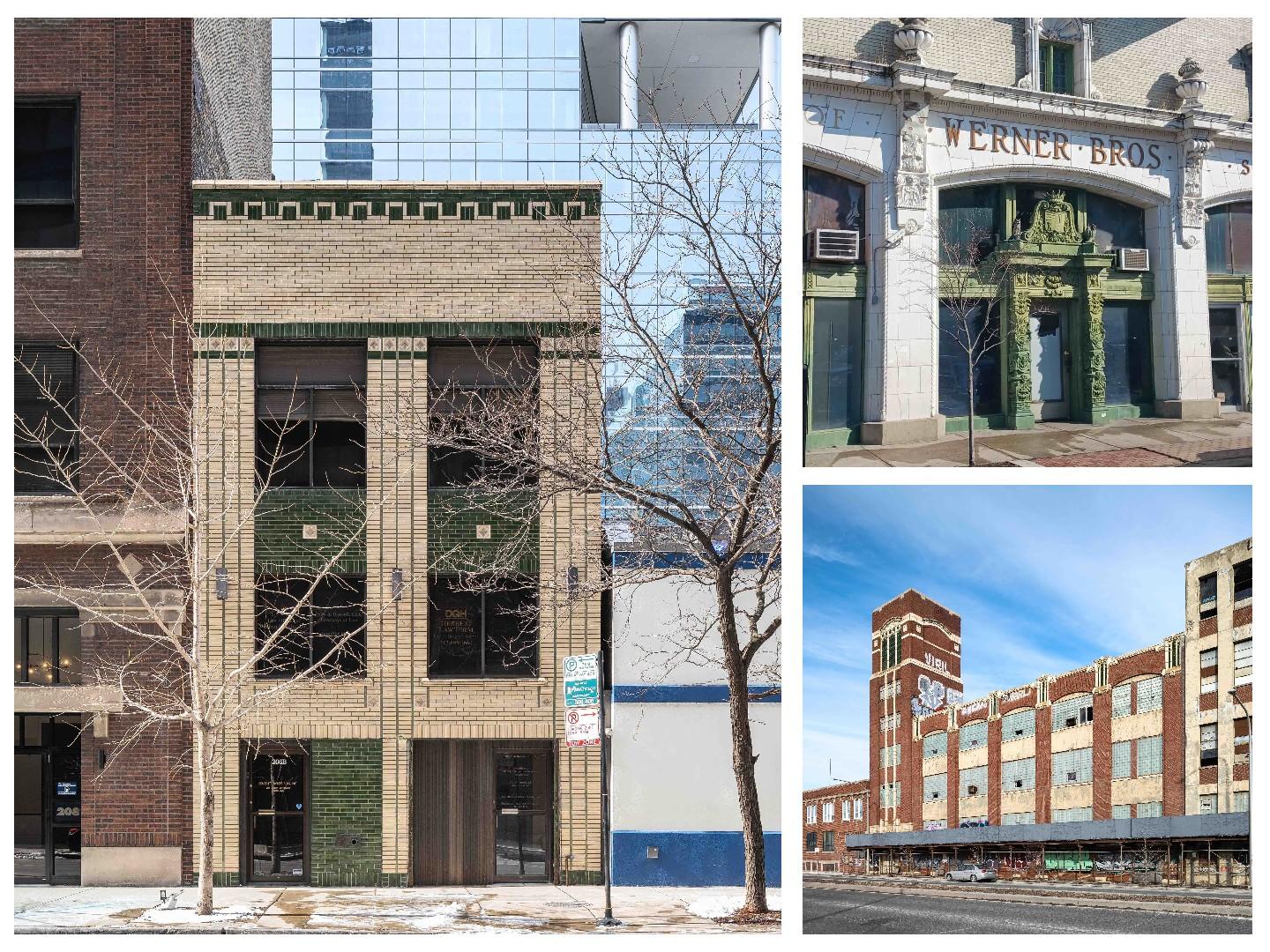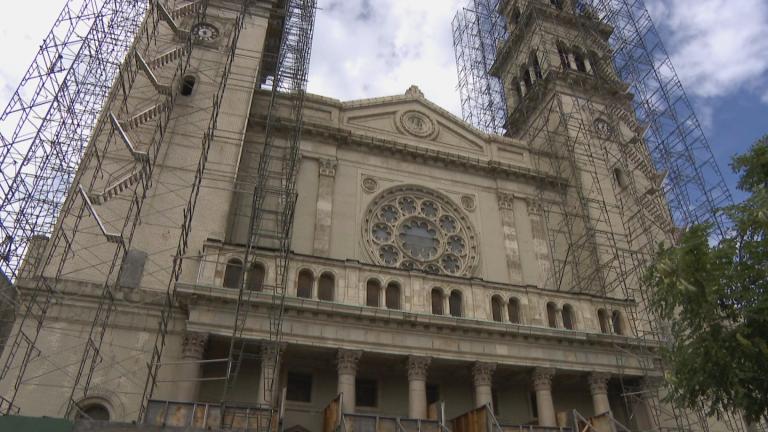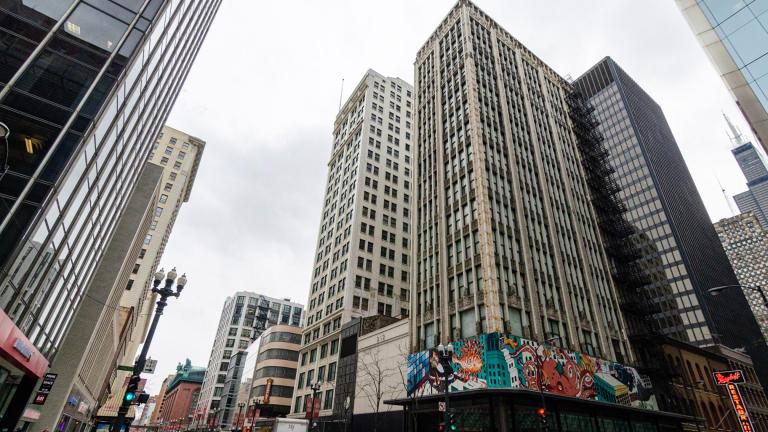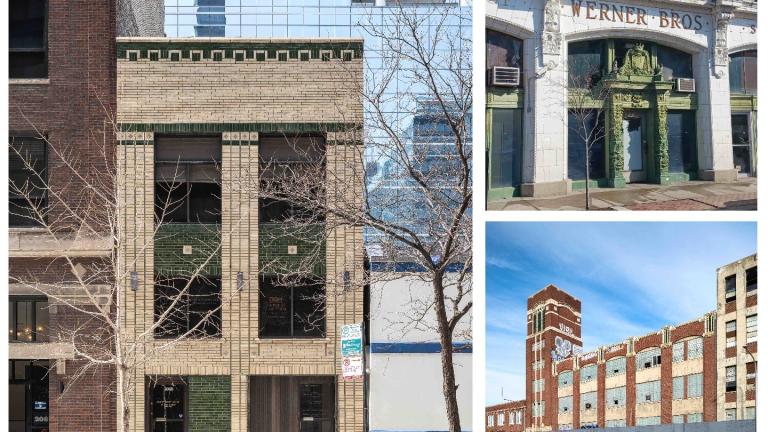 The Warehouse (l), Werner Brothers Storage Building and Continental Can Company Building are all the 2023 list of Preservation Chicago's Most Endangered buildings. (Credits: Serhii Chrucky, Ward Miller, Serhii Chrucky / Preservation Chicago)
The Warehouse (l), Werner Brothers Storage Building and Continental Can Company Building are all the 2023 list of Preservation Chicago's Most Endangered buildings. (Credits: Serhii Chrucky, Ward Miller, Serhii Chrucky / Preservation Chicago)
It’s official: Just three months after being placed on Preservation Chicago’s “Most Endangered” list, the Warehouse — the birthplace of House music — is now a Chicago landmark.
On Wednesday, City Council unanimously approved the designation for the building, which had previously cleared the Commission on Chicago Landmarks and received a resounding show of support from “Househeads” around the world.
The modest three-story building at 206 S. Jefferson St. in the West Loop was once the hottest dance club in town, the Warehouse.
This is the place where DJ Frankie Knuckles spun his mix of disco, electronic, soul and gospel, popularizing a new style of music — House — that took its name from the building.
The Warehouse opened in 1977, conceived as Chicago’s answer to New York City’s club scene. Owner Robert Williams recruited Knuckles to make the move from the Big Apple to the Windy City, and the rest was cultural history.
The influence of the Warehouse went well beyond the music that boomed from its sound system. At the time, its West Loop address was far from established entertainment districts, and the club’s underground status created “a safe place for marginalized Black and Brown and queer individuals when other outlets weren’t available,” said Frederick Dunson, a former Warehouse employee and president and executive director of the Frankie Knuckles Foundation.
Mayor Brandon Johnson lauded the Warehouse as a “haven for the LGBTQ community ... a place we could all belong.”
Ald. Carlos Ramirez-Rosa (33rd Ward) said Wednesday he was pleased to have the landmark designation passed during Pride month, which added significance to the vote.
The Warehouse closed in 1982 and the building fell off the radar until it was recently sold, with the real estate listing referencing a “development” opportunity, which is what prompted Preservation Chicago to raise the alarm about the building’s future.
But attorney Avi Kamionski, one of the new owners, assured the landmark commission there was never a plan to tear down the building. After an interior “refresh,” it will be used for office space, including for his own legal practice, Kamionski said.
The speed at which the Warehouse went from threatened to landmarked will be the subject of a panel discussion Friday, as part of the city’s House Music Festival and Conference.
Dunson and Max Chavez of Preservation Chicago will be among the guest speakers and the conversation is expected to touch on other ways to preserve and archive Chicago House history.
The conference is free and open to the public. It runs 5-9 p.m. at the Chicago Cultural Center; the complete schedule is available online.
On Saturday, from 11 a.m. to 9 p.m., head to Humboldt Park for the House Music Festival, where DJs will be spinning all day and a Taste of Chicago pop-up will be serving up eats.
Heather Cherone contributed to this report.
Contact Patty Wetli: @pattywetli | (773) 509-5623 | [email protected]






